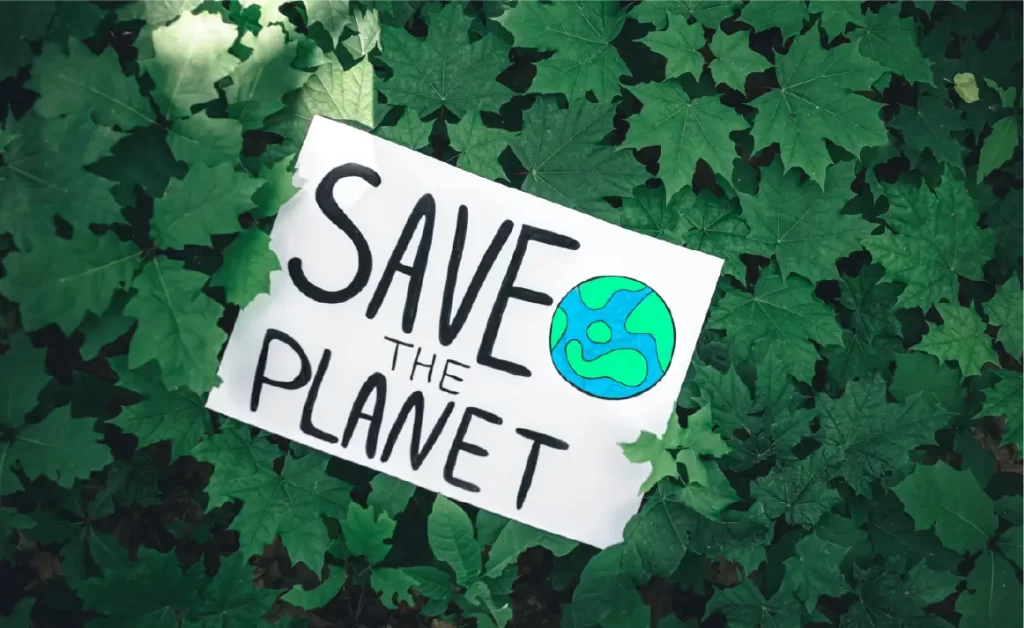How to Cut Carbon and Save the Planet
In a world where our consumption habits outpace the Earth’s capacity to regenerate, reducing our carbon footprint has never been more crucial. According to the Global Footprint Network, humanity currently uses resources at a rate that requires 18 months for the planet to regenerate what we consume in just 12 months. In 2024, Earth Overshoot Day fell on August 1st, highlighting the urgency of our need to change. Below, we explore actionable strategies across various aspects of daily life that can help you minimize your environmental impact and contribute to a sustainable future.
Transportation – Choose Cleaner Alternatives
One of the most effective ways to reduce your carbon footprint is by rethinking your transportation choices. Opting for walking, cycling, or public transportation instead of driving can cut your ecological footprint by up to 20%. If driving is unavoidable, selecting a smaller, fuel-efficient vehicle and reducing your mileage can significantly decrease emissions. Regular vehicle maintenance, such as checking air filters and keeping tires properly inflated, ensures optimal efficiency. Additionally, consider alternatives to air travel, such as trains or buses, which have a lower environmental impact. If flying is necessary, offset your carbon emissions by supporting climate protection projects through platforms like Atmosfair.
Housing – Implement Energy-Saving Measures
Your home offers numerous opportunities to reduce energy consumption. Start by installing energy-efficient lighting and ensuring proper insulation in walls and ceilings. Consider investing in double-pane windows and green building features like passive solar heating or rainwater catchment systems. When purchasing appliances, prioritize energy-efficient models, including low-flow showerheads, faucets, and toilets. Choosing second-hand or sustainably produced furnishings also contributes to a lower carbon footprint. Additionally, using biodegradable, non-toxic cleaning products benefits both your health and the environment.
Habits – Cultivate Energy Efficiency
Adopting energy-saving habits can further reduce your environmental impact. Keep your thermostat at a moderate temperature, lower in winter, and limit air conditioning use in summer. Clean A/C filters regularly for maximum efficiency. Unplug electronics when not in use, or use a power strip to make it easier to disconnect multiple devices. Drying clothes naturally rather than using a tumble dryer, and defrosting your refrigerator and freezer regularly are also simple yet effective measures.
Food and Goods – Make Sustainable Choices
Dietary and purchasing decisions have a profound impact on your carbon footprint. Supporting local farmers by shopping at farmers’ markets reduces the energy associated with food transportation and storage. Opt for organic or low-input farming products, which typically consume up to 40% less energy. Growing your own fruits and vegetables further reduces the energy footprint associated with food production. Even small changes, like going meatless for one meal a week, can make a significant difference, as plant-based diets produce up to 75% fewer emissions than meat-based diets. When buying goods, prioritize quality over quantity, repair items when possible, and always recycle materials like paper, glass, aluminum, and plastic.
Water Conservation – Simple Ways to Save
Water conservation is another vital component of reducing your environmental impact. Simple actions, such as taking shorter showers, running dishwashers and washing machines only when full, and washing your car less frequently, can save significant amounts of water. Consider planting drought-tolerant vegetation in your garden and yard, and always fix leaks promptly to prevent water waste.
Carbon Offsets – Compensate for Unavoidable Emissions
While reducing emissions is always preferable, carbon offsets provide a way to mitigate the impact of unavoidable emissions. These offsets support projects that reduce greenhouse gas emissions, such as renewable energy initiatives, energy efficiency programs, and reforestation efforts. When purchasing offsets, ensure the credibility of the schemes to avoid investing in ineffective or “phantom” offsets.
By making informed choices and adopting sustainable practices in transportation, housing, food, and water use, each of us can play a vital role in reducing our carbon footprint and contributing to a healthier planet. Every small change counts, and together, we can make a significant difference.

